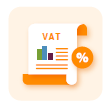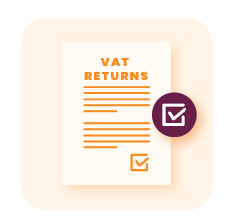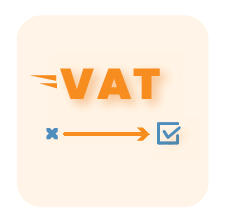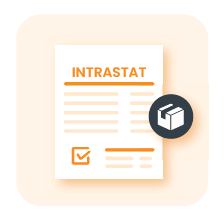Reverse Charge & “Call Off Stock” in Germany
- Through the reverse-charge mechanism, the supplier’s tax obligation shifts to the receiver of the supply, who then takes on the responsibility of computing the owed VAT.
- Many EU countries have streamlined their call-off stock procedures, but Germany initially maintained its requirements, obliging international suppliers to register for VAT when holding call-off stock in the country.
Everything you need to know about VAT Registration, Returns, Tax Representation (if applicable), and your legal duties in Germany is conveniently located right here!
Selling into Germany?
German “Call off stock”
Many EU countries have streamlined their call-off stock procedures, but Germany initially maintained its requirements, obliging international suppliers to register for VAT when holding call-off stock in the country. This changed on 10 October 2017 when the German Federal Ministry of Finance introduced a directive regarding the VAT treatment of call-off stocks in Germany.
A call-off stock scenario emerges when a non-resident supplier ships goods to be housed in the buyer’s country, often at the customer’s own premises. The customer then takes products from this stock as needed. Only when they pull from the stock does the buyer officially take ownership of the products from the international supplier.
Before 2020, for the call-off stock simplification to be applicable in Germany, a purchase agreement had to be active during the shipment, and several other conditions had to be satisfied. This meant the German customer had to be identified before shipping the items to Germany and either payment for the products was made or a firm order existed between the customer and the international supplier. The customer also had to have unrestricted access to the goods.
Import VAT
By streamlining the EU’s call-off stock process, foreign companies aren’t obligated to register for German VAT. The sale is seen as a “direct” intra-Community transfer of goods from the overseas company to the German buyer. This adjustment significantly lowers compliance costs and administrative hassles for the client while also offering considerable cash-flow advantages for the foreign company.
In Germany, import VAT is a distinct kind of VAT imposed by Customs on goods brought in from non-EU countries. This tax is applied to the value of the imported goods, inclusive of transportation charges, customs duties, consumption tax, and intra-EU shipping fees. The standard rate for this VAT is 19%, though a reduced rate of 7% may apply in certain cases.
To navigate the customs clearance, businesses need an EORI number. If imports into Germany are made using the ATLAS digital system, the importer receives a tax assessment note outlining the exact duties and import tax paid.
Companies can reclaim the import tax they’ve disbursed if they possess the original import tax document. Refunds can be claimed either in the firm’s VAT return or, if no taxable transactions occur in Germany, through the VAT refund procedure.
Deferring German Import VAT: Germany permits the deferral of import VAT up to 45 days, but to avail of this benefit, the importer must offer a guarantee. This system is referred to as the Payment Simplification Scheme.
As of 1 December 2020, with a deferment account, the payment of import VAT can be postponed further, granting businesses considerable cash flow advantages. This liquidity boost is both interest-free and risk-free. Moving forward, this deferred payment will be essential for maximizing VAT-related liquidity. Setting up a deferral account is straightforward, and companies without one are encouraged to apply without delay.
Last Updated: 28/09/2023
Disclaimer
The information provided by Global VAT Compliance B.V. on this webpage is intended for general informational purposes only. Global VAT Compliance B.V. is not responsible for the accuracy of the information on these pages, and cannot be held liable for claims or losses deriving from the use of this information. If you wish to receive VAT related information please contact our experts at support@gvc.tax








